Bumblebees could be wiped out by global warming
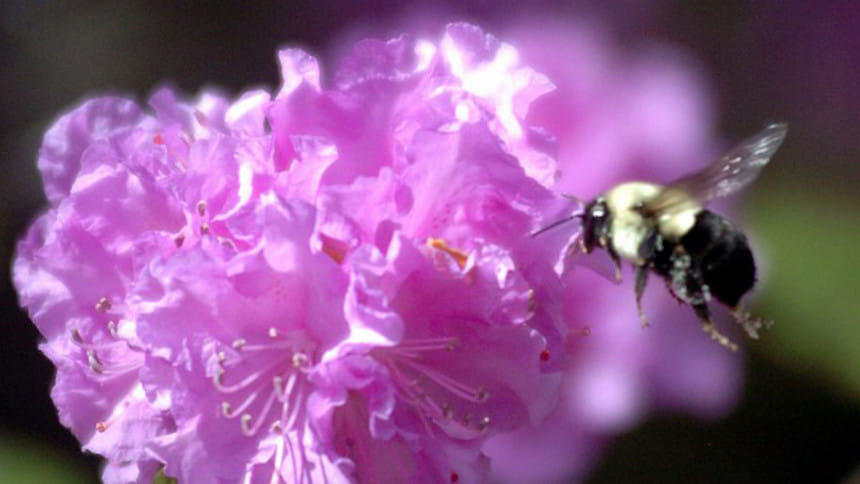
The summertime buzz of everyone’s favourite fuzzy bee could be silenced forever unless global warming slows down, reports BT.com.
Scientists are warning that urgent action needs to be taken to save bumblebees, after new evidence has shown warmer temperatures are having a devastating effect on the pollinating fuzzballs.
A study of 67 species has shown that, unlike other insects such as butterflies, bumblebees are not migrating further north in search of cooler places to live.
Instead, their range areas are being squeezed and their populations dwindling, say experts.
WHAT’S BEEN HAPPENING TO BUMBLEBEES RECENTLY?
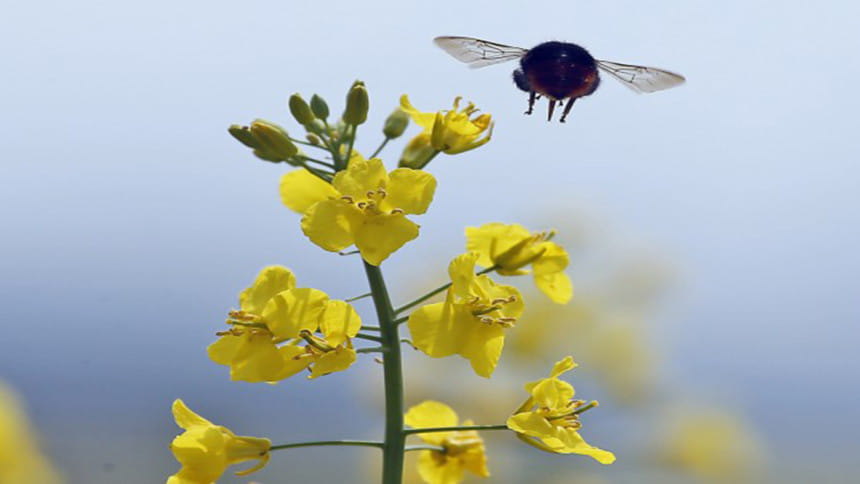
Over the past 110 years bumblebees have lost about 185 miles (298km) from the southern edge of their living space in Europe and North America.
Southern bee populations are disappearing as conditions become too warm for them, but there is no corresponding shift northwards. However, the northern boundary of the bees’ territory is not moving.
That’s why the squeeze is happening.
HOW HAS THIS BEEN LINKED TO CLIMATE CHANGE?

A strong correlation was found between what was happening to the bees and climate change.
Lead scientist Professor Jeremy Kerr, from the University of Ottawa in Canada, said: “Global warming has trapped bumblebees in a kind of climate vice. The result is dramatic losses of bumblebee species from the hottest areas across two continents.
“For species that evolved under cool conditions, like bumblebees, global warming might be the kind of threat that causes many of them to disappear for good.”
ARE WE SURE IT’S NOT SOMETHING ELSE?
The scientists looked at factors besides climate change that might have had an impact on the bees, including land use and pesticides. None was found to be relevant to the bumblebee range losses.
“Bumblebee disappearances from warm, southern areas are just as likely when there is no pesticide use and little agriculture,” said Prof Kerr. “But we know that increasingly frequent weather extremes, like heatwaves, can hit bumblebee species hard, and climate change poses threats that are already being felt.
The threat does come from a variety of causes, as Paul de Zylva, senior nature campaigner at Friends of the Earth, pointed out: “Bumblebees are already under pressure from loss of habitats and use of pesticides.
“Add in the havoc we’re facing unless we curb the effects of climate change, and these vital creatures which pollinate our crops and maintain a healthy, functioning natural world are severely under the cosh across continents.”
WHY ARE THE BEES SO BAD AT DEALING WITH TEMPERATURE CHANGE?
Bumblebees may be unusually vulnerable to climate change because, unlike many other insects with tropical origins, they evolved in the “Palearctic” ecozone which encompasses Europe, northern Asia and northern Africa.
For this reason they may not be so able to adapt to warmer temperatures.
HOW DOES THIS AFFECT THE HUMAN RACE?
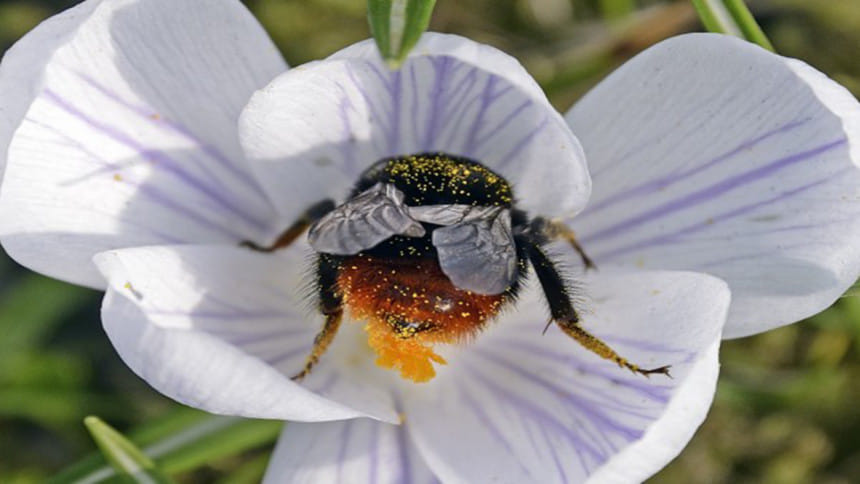
A selfish question, but worth answering if it spurs people to action. Basically it’s about the pollination of some of our most popular plants.
Dr Leif Richardson, from the University of Vermont, said: “These findings could spell trouble for many plants, including some crops like blueberries that depend on bumblebees for pollination. Bumblebees are crucial to our natural ecosystems.”
HOW CAN WE SAVE THE BEES?
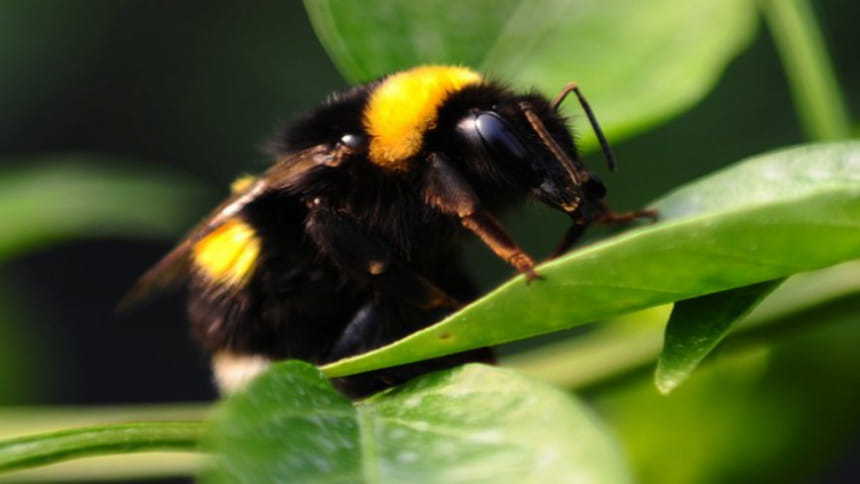
It may be necessary to help bumblebees establish new colonies further north by physically moving them, say the researchers.
So-called “assisted migration” is controversial among conservationists. But the idea is gaining support as a last resort in a warming world.
One hopeful note is that, while bumblebees were not extending the northern end of their range, some were heading for the hills and cooler, higher altitudes.
However, Dr Richardson added: “Moving up-slope doesn’t necessarily mean they’ve lost area there yet, but eventually they may simply run out of hill.”
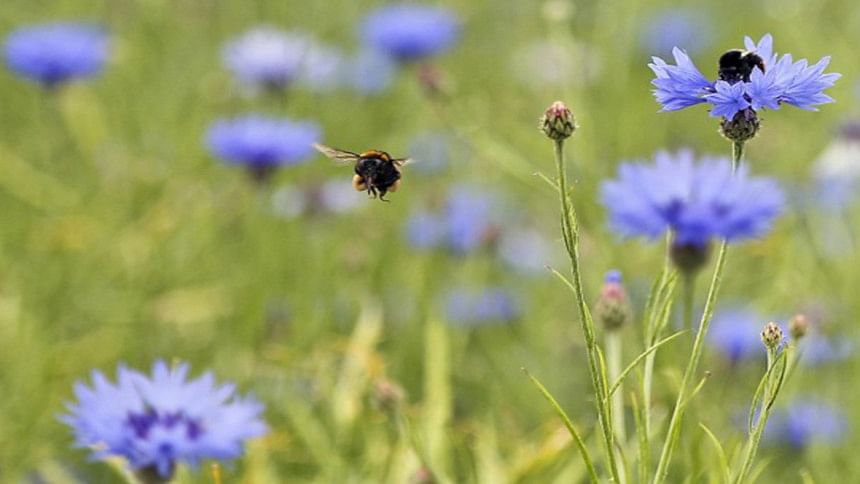
Scientific consensus is that governments need to up their game on climate change before the bees have nowhere left to go.
Findings from the research are reported in the journal Science.

 For all latest news, follow The Daily Star's Google News channel.
For all latest news, follow The Daily Star's Google News channel. 



Comments